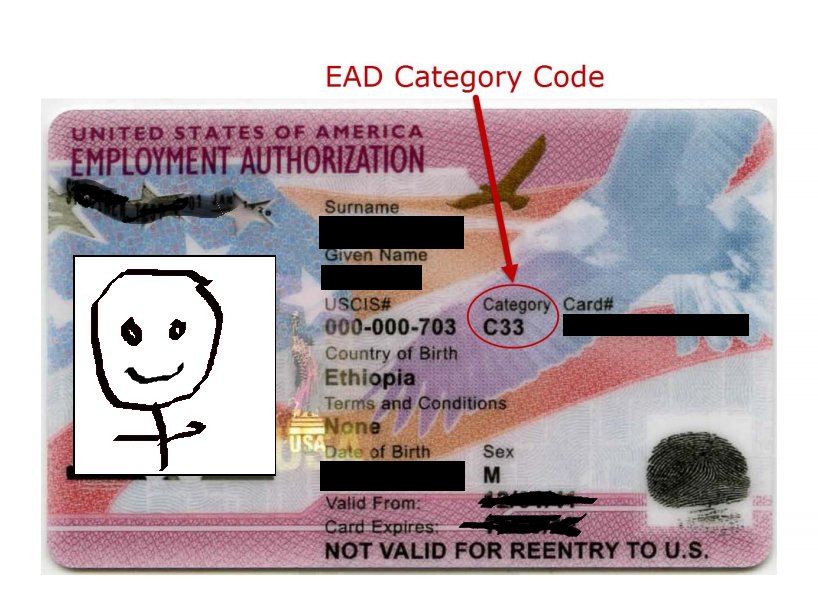ADJUSTMENT OF STATUS (I-485) CHECKLIST
USCIS sent out an email linking to their new page with this checklist. The USCIS.gov website states:
Please do not submit this checklist with your Form I-485. It is an optional tool to use as you prepare your form, but does not replace statutory, regulatory, and form instruction requirements. We recommend that you review these requirements before completing and submitting your form. Do not send original documents unless specifically requested in the form instructions or applicable regulations. You may view the form instructions at uscis.gov/i-485.
If you submit any documents (copies or original documents, if requested) in a foreign language, you must include a full English translation along with a certification from the translator verifying that the translation is complete and accurate, and that they are competent to translate from the foreign language to English.
There are three different checklists depending on the basis for which the applicant is filing their I-485 application.
1. Checklist of Required Initial Evidence for Immediate Relatives and Family-Based Preference Form I-485 Applicants.
2. Checklist of Required Initial Evidence for Employment-Based Form I-485 Applicants.
3. Checklist of Required Initial Evidence for Special Immigrant Juveniles.
There are subsets under those three. For example, the family based visas in the first section have subsections for family preference category petitions, immediate relative petitions, and other family members as you can see below:
CHECKLIST FOR IMMEDIATE RELATIVES
Did you provide the following?
- Two passport-style photographs;
- A copy of your government-issued identity document with photograph;
- A copy of your birth certificate. If it is unavailable or does not exist, submit other acceptable evidence of birth such as church, school, or medical records, and proof of unavailability or nonexistence;
- Inspection and admission, or inspection and parole documentation (unless applying for adjustment under INA 245(i)). For more information and examples, please see the form instructions;
- Documentation of immigrant category, such as a copy of Form I-797, Approval or Receipt Notice, for the Form I-130 filed on your behalf (unless you are filing your Form I-485 with the Form I-130 filed on your behalf);
- Form I-864, Affidavit of Support (if required);
- Certified police and court records of all criminal charges, arrests, or convictions regardless of final disposition (if applicable);
- Form I-601, Application for Waiver of Grounds of Inadmissibility (if applicable);
- Form I-212, Application for Permission to Reapply for Admission into the United States After Deportation or Removal (if applicable);
- Documentation regarding J-1 and J-2 exchange visitor status (Form I-612, if applicable);
- Form I-508, Waiver of Diplomatic Rights, Privileges, Exemptions, and Immunities (if applicable);
- Form I-566, Interagency Record of Request – A, G, or NATO Dependent Employment Authorization or Change/Adjustment to/from A, G, or NATO Status (only if you have A, G, or NATO nonimmigrant status); and
- Form I-485 Supplement A, Adjustment of Status Under Section 245(i) (Supplement A) (if applicable).
Family Members: If you are the spouse or child of a U.S. citizen’s immediate relative, you must independently qualify for adjustment of status and file your own application. You cannot qualify for adjustment of status as the derivative beneficiary based on the immediate relative’s application.
CHECKLIST FOR FAMILY PREFERENCE IMMIGRANTS
If you are a principal applicant, did you provide the following?
- Everything listed above for immediate relatives; and
- Proof that you have continuously maintained a lawful status since arriving in the United States.
If you are the spouse or unmarried child under 21 years of age of a family-based principal applicant, did you provide the following?
- Everything listed above for immediate relatives;
- Proof you have continuously maintained a lawful status since arriving in the United States;
- A copy of documentation showing your relationship to the principal applicant, such as a marriage certificate, birth certificate, or adoption decree. If your marriage certificate is unavailable or does not exist, submit other acceptable evidence such as church records and proof of unavailability or nonexistence;
- A copy of the Form I-797, Approval or Receipt Notice, for the principal applicant’s Form I-130 (unless you are filing your Form I-485 together with the principal applicant’s Form I-485); and
- A copy of the Form I-797, Approval or Receipt Notice, for the principal applicant’s Form I 485 or a copy of the principal applicant’s Green Card (if not filing together with the principal applicant’s Form I-485).









